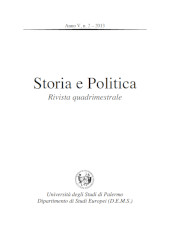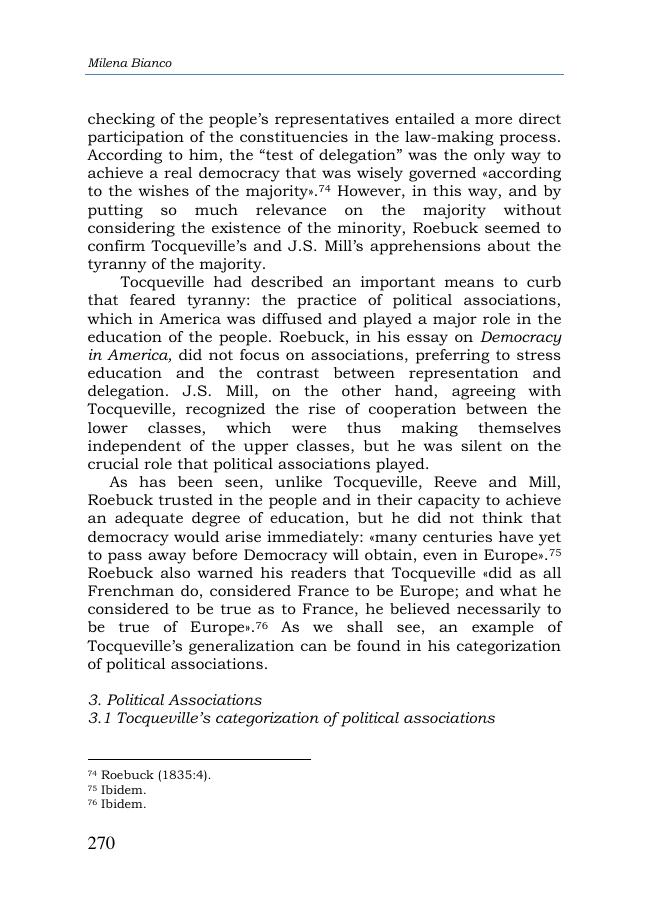Democracy in America and the London political debate on democracy
251-289 p.
When Democracy in America was published in London in 1835, the radical political debate had for years focused on democracy, representative government, universal suffrage, the ballot and the contrast between representation and delegation. Looking to America, as Bentham had done in his Plan of Parliamentary Reform, Tocqueville's work and its critical reception among the democrats fostered in that debate the issue of the practicability of democracy, the relevance of political education and the contrast between delegation and representation. In light of Tocqueville's distinguishing between American and European political associations, this paper also explores the peculiarities of the two main protagonists of the democratic political debate post-Tocqueville: the Chartist LWMA and the LDA.
In this work the Montainard theorist resumes the dicothomy order/disorder, and opposes monarchy - defined as the political order and characterized by strength and the corruption of the m{oelig}urs, to the republican form, meant as the moral order holding on the republican trinomial and on the institutions founded on the republican m{oelig}urs. In the new institutional and moral context, the king, as a consequence, cannot be considered as a citizen equal to the others or as an inviolable figure as the historical and cultural tradition of the monarchic France sees him. Conversely, Louis is, according to Saint-Just, a foreigner, a traitor of the home- land and must be judged as such. However, the very fact that he is not a citizen of the Republic, implies a very important juridical aspect: the king, as a matter of fact, can't be judged following the rules of civil law, but the political laws of people. [Publisher's text].
Fait partie de
Storia e politica : rivista quadrimestrale : V, 2, 2013-
Articles du même numéro (disponibles individuellement)
-
Informations
ISSN: 2037-0520
KEYWORDS
- Democracy, Tocqueville, political associations, education, tyranny of the majority



